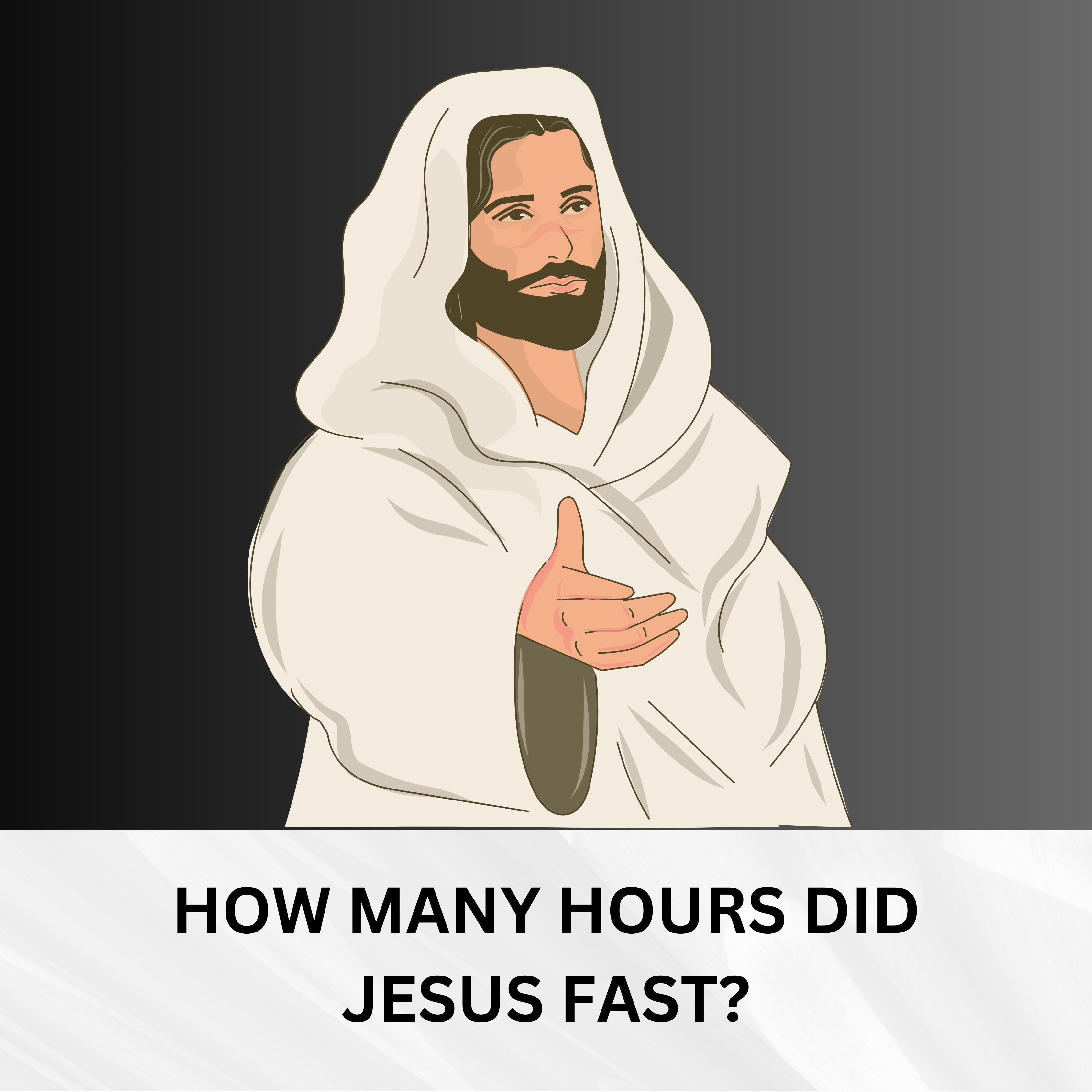Introduction: How Many Hours Did Jesus Fast? A Comprehensive Analysis
Fasting is a significant spiritual practice across many religious traditions, especially in Christianity. Among the most notable fasts is that of Jesus Christ, who fasted for 40 days and nights in the wilderness. This article delves into the specifics of Jesus’ fast, including how many hours it entailed, the theological implications of this period, and its relevance in contemporary Christian practice.
The Biblical Account of Jesus’ Fast
Overview of the Gospel Narratives
Jesus’ fast is primarily chronicled in the Synoptic Gospels: Matthew, Mark, and Luke. Each Gospel provides insight into the nature and purpose of this fast.
- Matthew 4:1-11: This account describes Jesus being led by the Spirit into the wilderness to be tempted by the devil. After fasting for 40 days and nights, he was hungry, leading to a series of temptations from Satan.
- Mark 1:12-13: Mark’s narrative is succinct, stating that Jesus was in the wilderness for 40 days, being tempted by Satan, without detailing the specifics of his fasting experience.
- Luke 4:1-13: Similar to Matthew, Luke elaborates on the temptations that followed the fasting period, underscoring Jesus’ hunger after the 40 days.
From these accounts, we can ascertain that Jesus fasted for a period of 40 days, a duration that translates to 960 hours.
The Significance of the Number 40
The number 40 holds substantial significance in the Bible, often associated with periods of testing, trial, and transformation. For instance:
- The Flood: It rained for 40 days and nights during Noah’s time (Genesis 7:12).
- Moses: He spent 40 days on Mount Sinai (Exodus 24:18).
- Israelites: They wandered in the wilderness for 40 years (Numbers 14:33-34).
Jesus’ 40-day fast connects him to these significant biblical narratives, reinforcing his role as a figure of fulfillment and transformation.
The Nature of Fasting
Types of Fasting
Fasting can take various forms, including:
- Absolute Fast: No food or water is consumed. This is typically not sustainable beyond a few days.
- Partial Fast: Certain foods or meals are omitted.
- Normal Fast: Water is consumed, but no food is eaten.
The Gospels do not explicitly state whether Jesus consumed water during his 40-day fast. The emphasis is on his abstention from food, indicating a complete fast or possibly a partial fast depending on interpretations of the texts.
The Spiritual Purpose of Fasting
Fasting serves multiple spiritual purposes:
- Intensified Prayer: Fasting often accompanies prayer, helping individuals focus their spiritual attention.
- Repentance: It serves as an act of humility and seeking forgiveness.
- Preparation: In Jesus’ case, his fast prepared him for his ministry and the temptations that lay ahead.
Theological Implications of Jesus’ Fast

The Humanity of Christ
Jesus’ fast emphasizes his fully human experience. By choosing to fast for 40 days, he demonstrated human vulnerability, experiencing hunger and possibly thirst. This aspect of his nature is crucial in understanding his empathy toward human struggles.
Spiritual Warfare
The fast was not just a personal trial; it was a confrontation with spiritual forces. The temptations that followed illustrate the nature of spiritual warfare, a theme that recurs throughout the New Testament. Fasting here serves as a preparation for this battle, highlighting reliance on divine strength rather than human sustenance.
Modeling for Believers
Jesus’ fast sets a powerful precedent for believers. It illustrates the significance of fasting as a spiritual discipline. Christians today often reference Jesus’ fast when discussing the importance of seeking God through prayer and abstinence from physical needs.
Contemporary Understanding of Fasting
Fasting Practices in Modern Christianity
Fasting remains a relevant practice in contemporary Christianity, with various denominations observing it differently:
- Lent: Many Christians observe Lent, a 40-day period of fasting and prayer leading up to Easter, mirroring Jesus’ fast.
- Personal Fasting: Some believers choose to fast for personal reasons, seeking spiritual growth, clarity, or healing.
Health Considerations
The physical implications of fasting are widely discussed today. While spiritual benefits are emphasized, it is essential to consider physical health. Modern approaches often incorporate mindful fasting, focusing on holistic well-being alongside spiritual growth.
The Role of Community
Fasting can also foster a sense of community. Group fasting experiences, such as during church retreats or Lenten observances, encourage mutual support and collective spiritual growth.
Practical Aspects of Fasting
Preparing for a Fast
For those considering fasting, preparation is crucial. This can include:
- Setting Intentions: Clearly defining spiritual goals for the fast.
- Physical Preparation: Gradually reducing food intake can help the body adjust.
- Choosing the Type of Fast: Selecting the most suitable type of fast based on health and spiritual goals.
During the Fast
While fasting, individuals can:
- Engage in Prayer: Intensify prayer life, using this time to connect more deeply with God.
- Study Scripture: Incorporate Bible reading, focusing on passages related to fasting and spiritual growth.
- Reflect: Use the fasting period for self-examination and reflection.
Breaking the Fast
Ending a fast requires care. Gradually reintroducing food helps the body adjust and maximizes the spiritual benefits gained during the fast.
Conclusion
In summary, Jesus fasted for 40 days, equating to 960 hours of abstaining from food. This period holds profound significance, not only in the context of Jesus’ ministry but also as a model for Christian practice. His fast embodies spiritual preparation, vulnerability, and the reality of spiritual warfare, providing a framework for believers today.
Fasting remains a vital spiritual discipline in modern Christianity, encouraging believers to seek God more intently and rely on divine strength. As Christians engage in fasting, they are invited to reflect on the example set by Jesus, understanding that fasting is not merely an act of abstention but a profound journey of spiritual connection and transformation.
